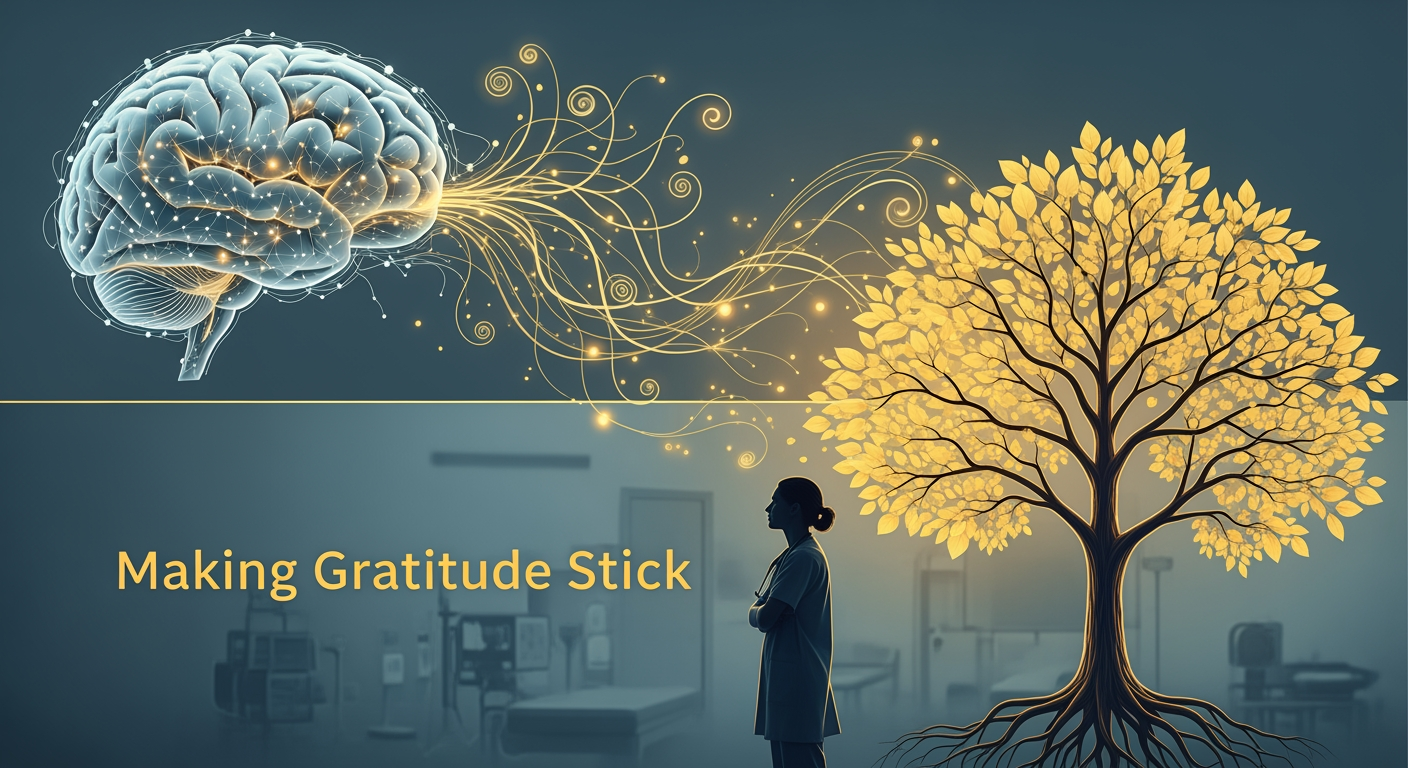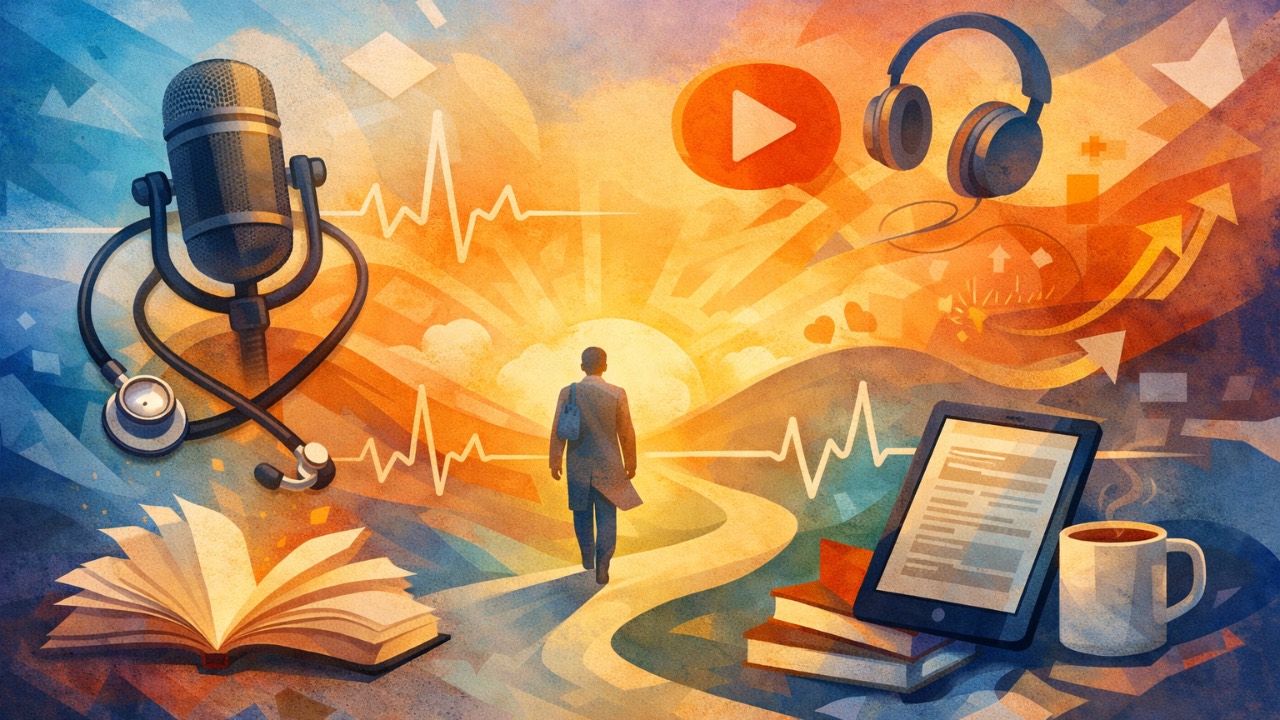Making Gratitude Stick: Turning Relief Into Real Change

When you pause and feel grateful in the middle of a hard day, something real happens. Your nervous system settles. Your chest loosens. You feel a little less alone. That short-term effect matters.
But I want more for you than momentary relief.
Long-term gratitude practice, the kind you repeat, even briefly, over weeks and months, literally retrains how your brain pays attention.
Through neuroplasticity, your brain becomes more efficient at noticing meaning, safety, connection, and alignment, even in difficult situations. You start to recover faster from stress. You start to feel more grounded. You start to feel like yourself again.
That’s the version of gratitude I care about teaching: not “be positive,” but “rebuild the way your mind experiences your own life.”
This newsletter wraps up a three-part series on gratitude:
- Part 1: the science of gratitude in the brain
- Part 2: how to practice gratitude using story, letters, and reappraisal
- Part 3 (today): how to make it stick so it becomes part of who you are
Because it’s not enough to survive medicine. I want you to build a life, inside or outside medicine, that you actually want to keep.
“Neurons that fire together wire together"
Coach's Corner
This week’s practice is called “End of Day Encoding.”
Here’s how it works:
- At the end of the day, (it doesn't matter exactly when- before bed, when charting is finally done, or even sitting in your car before you drive home) pause for one minute.
- Ask yourself: “What moment today reminded me I’m still the kind of person I want to be?”
- Maybe you advocated for a patient.
- Maybe you protected a trainee.
- Maybe you were kind when you were tired.
- Replay that moment with detail. See it again. Feel it again.
That’s it.
Sounds simple, but what you’re doing here is extremely sophisticated. By pairing a lived experience with conscious recall, you are strengthening the neural pathway for “this matters to me.”
Do that every day for a week, and you’re not just remembering a moment. You’re shaping identity.
It takes one minute. And it changes your baseline.
If you’ve been following this series and you’re thinking, “I want this, but I don’t trust myself to keep it going,” I get that.
That’s why I coach.
Coaching is NOT me handing you platitudes. Coaching is us sitting down together and getting very honest about what’s eroding you and what’s left in you that’s worth protecting and building around.
If you’re ready for a version of your career (or a next chapter outside of it) that doesn’t require self-erasure, I’d love to work with you.
Small practices can change your day.
Sustained practices can change your life.
You deserve the second one.
To changing your life,
Ben






Responses